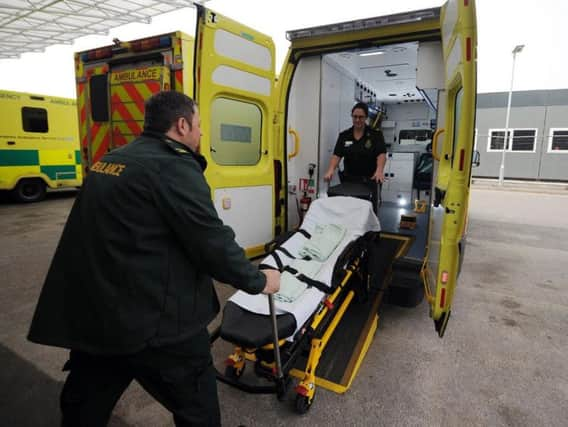Hull hospital's plea to public to help ease A&E crisis


Hull Royal Infirmary was among hospitals across the country which were forced to cancel appointments earlier this year, with doctors and nurses redeployed to overrun Accident and Emergency departments.
This year, the hospital is nearly increasing the number of temporary assessment beds at its Emergency Department, from 28 to 52, in an effort to boost capacity through the traditionally busy colder months.
Advertisement
Hide AdAdvertisement
Hide AdThe beds are used to accommodate patients while medics conduct tests to determine whether they need to be admitted, easing pressure on other wards.
But hospital bosses are also urging the public to do their part to keep the service free for those who need it most, with the trust warning that about half of people who take themselves to its Emergency Care Area, the public-facing part of the Emergency Department, could have gone elsewhere.
Teresa Cope, the chief operating officer for the Hull and East Yorkshire Hospitals NHS Trust, said: “We see about 200 patients through that bit of the Emergency Department every day, and we think probably half of these could have been treated somewhere else.”
She urged people to consider visiting a GP, pharmacist or urgent treatment centre or calling NHS 111 before heading to hospital with a minor ailment and warned that anyone turning up at A&E could be in for a wait of many hours before being treated.
Advertisement
Hide AdAdvertisement
Hide Ad“Earache, sore throats, back pain for a couple of weeks, these are the sorts of things we would really want people to go to their GP with, or some sort of walk-in centre,” she said.
“Our sickest patients are prioritised as appropriate, so people with minor illnesses and minor ailments who could have gone to those other facilities will be waiting longer and that is unfortunately just how we have to manage resources.”
The trust had to cancel routine surgery and some outpatient clinics over an eight-day period earlier this year, following an unprecedented edict from NHS England, under Operation Wintergreen, for hospitals across the country to postpone non-urgent operations to help ease pressures on the system.
Mrs Cope said each year the trust schedules fewer operations during the winter months, which it would be doing again this year.
But she said having to cancel operations once again could always be a possibility.